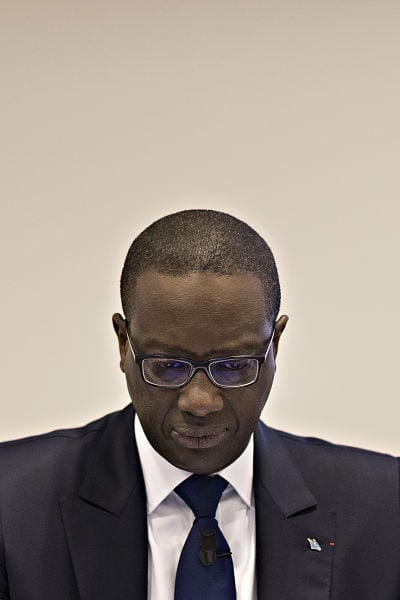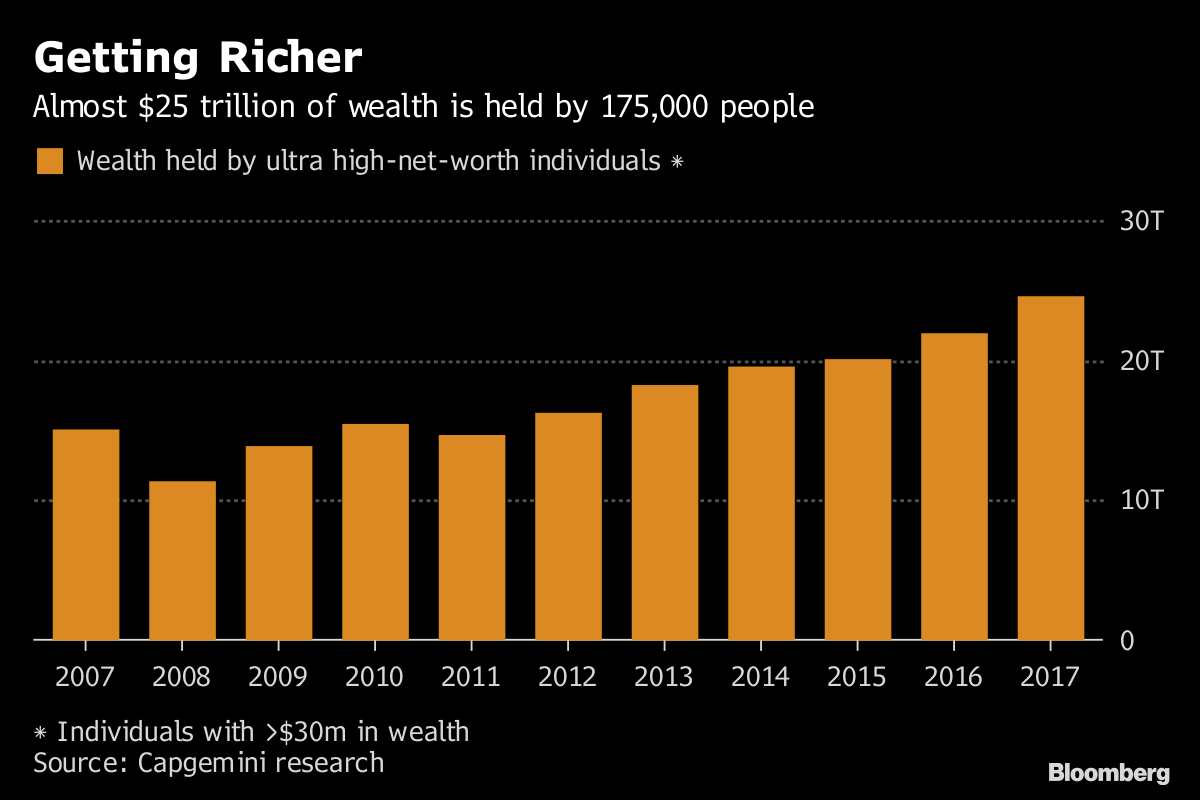

 The new regime didn't sit well with everyone. The overhaul has been confusing and taken a toll on morale, according to eight current and former employees. One banker counted having eight team leaders in two years because they got fired or quit. Staff became paranoid about making mistakes and competition between newly created divisions has grown, others said.
(More: Volatility-tied note that crashed was meant for hedge funds: Credit Suisse CEO)
Raised in Morocco and educated at elite French schools, Mr. Thiam likes to do his homework. He reads every investor presentation of his biggest rivals, according to one person. But day to day, five people said Mr. Thiam rarely engages with employees in Zurich, a contrast to Dougan, who took the tram to work and was more approachable.
People close to him said it isn't always easy being Switzerland's first black CEO just as attitudes toward foreigners soured with the rise of the anti-immigration Swiss People's Party.
Mr. Thiam, who recently denied speculation he was quitting finance to run for the Ivory Coast presidency, has thrived in the spotlight. At Prudential, he became the first black CEO in the FTSE 100. Swiss newspaper Blick dubbed him the "Obama of Credit Suisse" shortly before he joined, underscoring the anticipation he could return the bank to glory.
Investors are waiting for him to deliver.
"He took a very sleepy British life insurance company and turned it into a growth stock. He hasn't worked his magic on this thing yet," said Marc Halperin, a senior money manager at Federated Global Investment Management in New York, who isn't ready to offload his Credit Suisse shares after they tanked 35 percent this year.
Within months of joining, Mr. Thiam suggested he might sell a stake in Swiss Universal Bank to the public. He didn't intend to go through with it, according to a person with direct knowledge of his thinking, but wanted everyone to know he'd stop at nothing, even giving up control of a crown jewel, to raise capital.
"He hasn't worked his magic on this thing yet"
The maneuver worked. By the time Mr. Thiam scrapped the IPO in April 2017, investors were enamored enough to buy 4 billion francs ($4 billion) of new shares. In total, he's boosted capital by 10 billion francs since 2015, but at the cost of massively diluting each share.
(More: Finra arbitration panel orders Credit Suisse to pay former broker $844,621)
That's why shareholders have staged regular revolts over Mr. Thiam's pay, the equivalent of $9.7 million last year. A $5.3 billion U.S. settlement over the past sale of toxic mortgage securities and the trading unit's unexpected losses as recently as the third quarter have worsened sentiment. Mr. Thiam may need to announce a share buyback and further downsizing of the trading business on investor day to win back trust.
But Mr. Thiam's pivot to private banking, especially in Asia, was prescient. There are now more billionaires in Asia than the U.S., and Credit Suisse is wooing entrepreneurs looking for one place to manage their personal wealth and help their businesses do deals, like IPOs or acquisitions. Asian billionaires can now even borrow against illiquid assets like buildings, roads or plantations.
Some people interviewed suspect international wealth management head Iqbal Khan will take over when Mr. Thiam steps down, but they said that's at least two years away. After all, Mr. Thiam has only kept things from deteriorating rather than jump-starting an authentic turnaround. Pretax income is barely back to 2014 levels yet, following three years in the red.
After getting Credit Suisse off life support, the onus now for the six-foot-four banking outsider is to prove his formula can bring genuine healing when tumbling markets are clobbering wealth managers everywhere. If analysts are right, profit growth is on the way.
"The single most important thing in life is not to die,"Mr. Thiam said in an interview with Bloomberg Markets in 2016. "First, you stay alive. Then you can think about the future."
The new regime didn't sit well with everyone. The overhaul has been confusing and taken a toll on morale, according to eight current and former employees. One banker counted having eight team leaders in two years because they got fired or quit. Staff became paranoid about making mistakes and competition between newly created divisions has grown, others said.
(More: Volatility-tied note that crashed was meant for hedge funds: Credit Suisse CEO)
Raised in Morocco and educated at elite French schools, Mr. Thiam likes to do his homework. He reads every investor presentation of his biggest rivals, according to one person. But day to day, five people said Mr. Thiam rarely engages with employees in Zurich, a contrast to Dougan, who took the tram to work and was more approachable.
People close to him said it isn't always easy being Switzerland's first black CEO just as attitudes toward foreigners soured with the rise of the anti-immigration Swiss People's Party.
Mr. Thiam, who recently denied speculation he was quitting finance to run for the Ivory Coast presidency, has thrived in the spotlight. At Prudential, he became the first black CEO in the FTSE 100. Swiss newspaper Blick dubbed him the "Obama of Credit Suisse" shortly before he joined, underscoring the anticipation he could return the bank to glory.
Investors are waiting for him to deliver.
"He took a very sleepy British life insurance company and turned it into a growth stock. He hasn't worked his magic on this thing yet," said Marc Halperin, a senior money manager at Federated Global Investment Management in New York, who isn't ready to offload his Credit Suisse shares after they tanked 35 percent this year.
Within months of joining, Mr. Thiam suggested he might sell a stake in Swiss Universal Bank to the public. He didn't intend to go through with it, according to a person with direct knowledge of his thinking, but wanted everyone to know he'd stop at nothing, even giving up control of a crown jewel, to raise capital.
"He hasn't worked his magic on this thing yet"
The maneuver worked. By the time Mr. Thiam scrapped the IPO in April 2017, investors were enamored enough to buy 4 billion francs ($4 billion) of new shares. In total, he's boosted capital by 10 billion francs since 2015, but at the cost of massively diluting each share.
(More: Finra arbitration panel orders Credit Suisse to pay former broker $844,621)
That's why shareholders have staged regular revolts over Mr. Thiam's pay, the equivalent of $9.7 million last year. A $5.3 billion U.S. settlement over the past sale of toxic mortgage securities and the trading unit's unexpected losses as recently as the third quarter have worsened sentiment. Mr. Thiam may need to announce a share buyback and further downsizing of the trading business on investor day to win back trust.
But Mr. Thiam's pivot to private banking, especially in Asia, was prescient. There are now more billionaires in Asia than the U.S., and Credit Suisse is wooing entrepreneurs looking for one place to manage their personal wealth and help their businesses do deals, like IPOs or acquisitions. Asian billionaires can now even borrow against illiquid assets like buildings, roads or plantations.
Some people interviewed suspect international wealth management head Iqbal Khan will take over when Mr. Thiam steps down, but they said that's at least two years away. After all, Mr. Thiam has only kept things from deteriorating rather than jump-starting an authentic turnaround. Pretax income is barely back to 2014 levels yet, following three years in the red.
After getting Credit Suisse off life support, the onus now for the six-foot-four banking outsider is to prove his formula can bring genuine healing when tumbling markets are clobbering wealth managers everywhere. If analysts are right, profit growth is on the way.
"The single most important thing in life is not to die,"Mr. Thiam said in an interview with Bloomberg Markets in 2016. "First, you stay alive. Then you can think about the future."

Relationships are key to our business but advisors are often slow to engage in specific activities designed to foster them.

Whichever path you go down, act now while you're still in control.

Pro-bitcoin professionals, however, say the cryptocurrency has ushered in change.

“LPL has evolved significantly over the last decade and still wants to scale up,” says one industry executive.

Survey findings from the Nationwide Retirement Institute offers pearls of planning wisdom from 60- to 65-year-olds, as well as insights into concerns.
Streamline your outreach with Aidentified's AI-driven solutions
This season’s market volatility: Positioning for rate relief, income growth and the AI rebound
